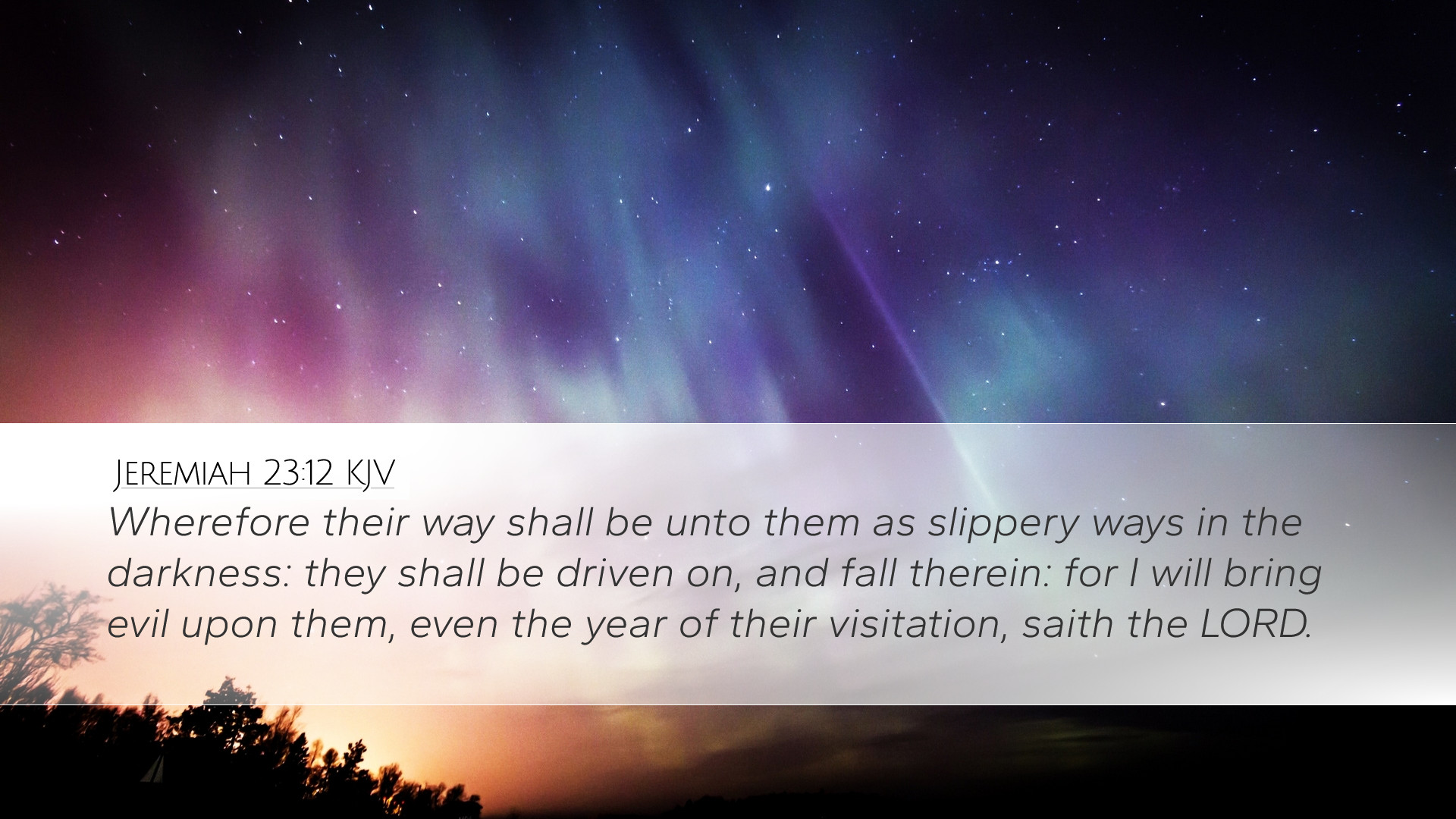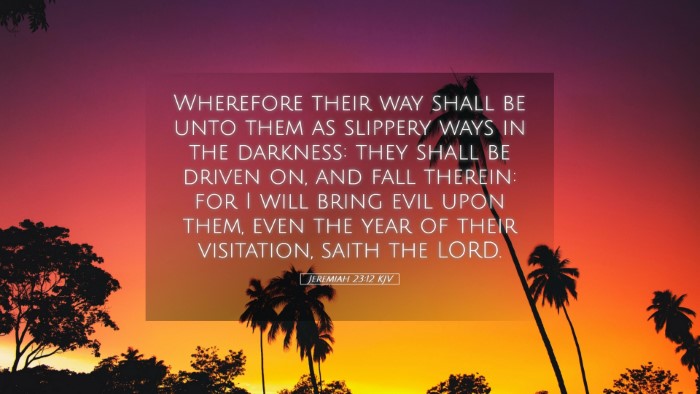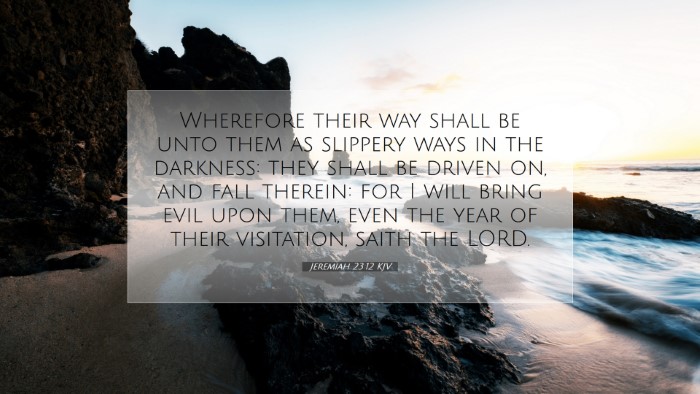Commentary on Jeremiah 23:12
Jeremiah 23:12 states: "Wherefore their way shall be unto them as slippery ways in the darkness: they shall be driven on, and fall therein: for I will bring evil upon them, even the year of their visitation, saith the LORD." This verse reflects a solemn warning from God through the prophet Jeremiah concerning the false prophets and leaders of Israel. The subsequent analysis seeks to distill key insights from the works of several esteemed public domain commentators, providing a rich tapestry of theological understanding, warnings about spiritual leadership, and reflections on divine judgment.
Contextual Overview
Jeremiah's ministry came at a time of severe national crisis for Judah. The people were led astray by false prophets who spoke peace and safety while ignoring God's judgments and the impending Babylonian exile. This scripture is part of a larger discourse where God condemns the leaders for their failure to guide His people.
Insights from Matthew Henry
Matthew Henry emphasizes the idea that those who lead others into sin ultimately face severe consequences. He notes:
- Slippery Ways: The imagery of "slippery ways in darkness" suggests that those who deviate from God's truth are on a precarious path. They lack firm footing and are unable to see their danger.
- Divine Judgment: Henry highlights that God’s judgment is inevitable for those who lead others astray. The "evil" mentioned signifies the punishment due to their negligence and falsehoods.
- Spiritual Leadership: The passage serves as a stark reminder of the responsibility that comes with spiritual authority. Leaders must be diligent and faithful in their calling.
Insights from Albert Barnes
Albert Barnes focuses on the implications of divine retribution and the fate of those who oppose God's will:
- Fall into Darkness: Barnes interprets the "falling therein" as a metaphor for moral and spiritual decline. The consequences of leading others into darkness are severe and often result in isolation from God's presence.
- Visitation and Judgment: The "year of their visitation" is a time when God will execute judgment. Barnes equates this with a period of reckoning, where God's patience gives way to action against the wicked.
- People's Responsibility: Barnes reminds readers that the people of Judah must also bear responsibility for allowing themselves to be misled, showcasing a mutual culpability between prophets and the populace.
Insights from Adam Clarke
Adam Clarke provides a detailed examination of the text, shedding light on the gravity of divine displeasure:
- Symbolism of Slippery Ways: Clarke sees the "slippery ways" as emblematic of instability. He discusses how those who trust in false leaders will inevitably be led to destruction.
- Impending Doom: Clarke asserts that this verse foreshadows the coming doom that rests on the shoulders of corrupt leaders. He urges a reflective examination of one’s own adherence to true teaching.
- God's Absolute Sovereignty: He emphasizes God's sovereign authority to bring about judgment. The certainty of their downfall is a theological affirmation of God's omnipotence and holiness.
Theological Themes
This commentary reveals several critical theological themes:
- Judgment: A common thread is God's commitment to justly address sin. The passage underscores the seriousness with which God regards the integrity of spiritual leadership.
- Accountability: Leaders are called to shepherd their flocks faithfully. Their failure has repercussions not only for themselves but also for those they mislead.
- Hope amidst Judgment: While the text speaks of judgment, it also evokes a call to repentance, suggesting that restoration may be possible through genuine return to right paths.
Application for Pastors, Students, and Scholars
This verse has profound implications for contemporary spiritual leaders and believers alike:
- Vigilance in Teaching: Those in positions of authority should strive to teach truthfully, remaining vigilant against the lure of falsehood.
- Awareness of Influence: It is crucial for both leaders and laypeople to recognize the impact of their actions and choices regarding faith and morality.
- Encouragement for Reform: The call for reformation is vital. There is hope for revitalization in spiritual leadership as leaders turn back to God.
Conclusion
Jeremiah 23:12 serves as a poignant reminder of the dangers posed by false prophets and the truth’s unwavering power. Through the insights gleaned from Matthew Henry, Albert Barnes, and Adam Clarke, we come to appreciate both God’s justice and His call to authentic leadership within the church. As we reflect on this passage, may it spur us towards greater fidelity to God's word and a deeper commitment to upholding truth in our own lives.


